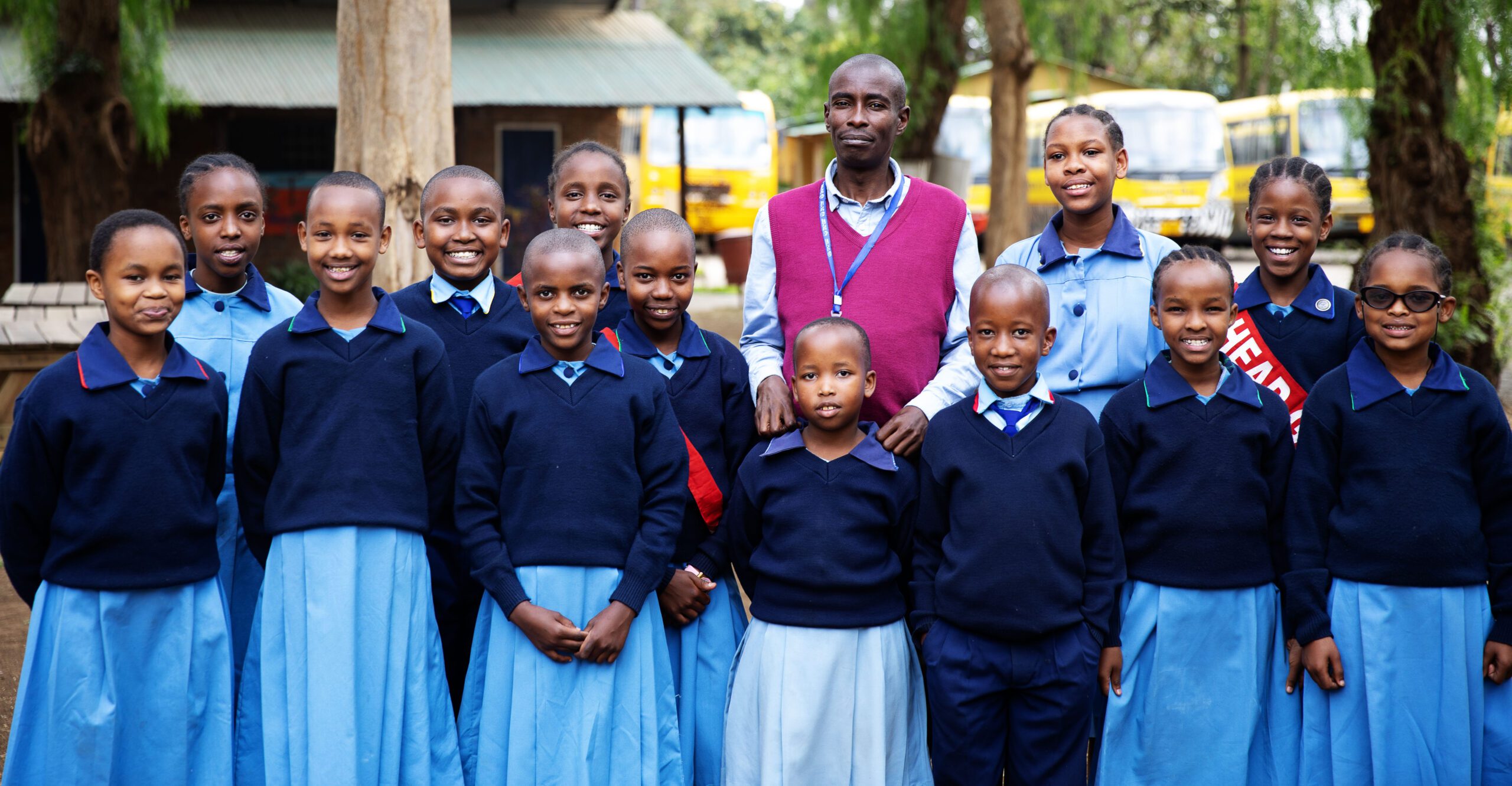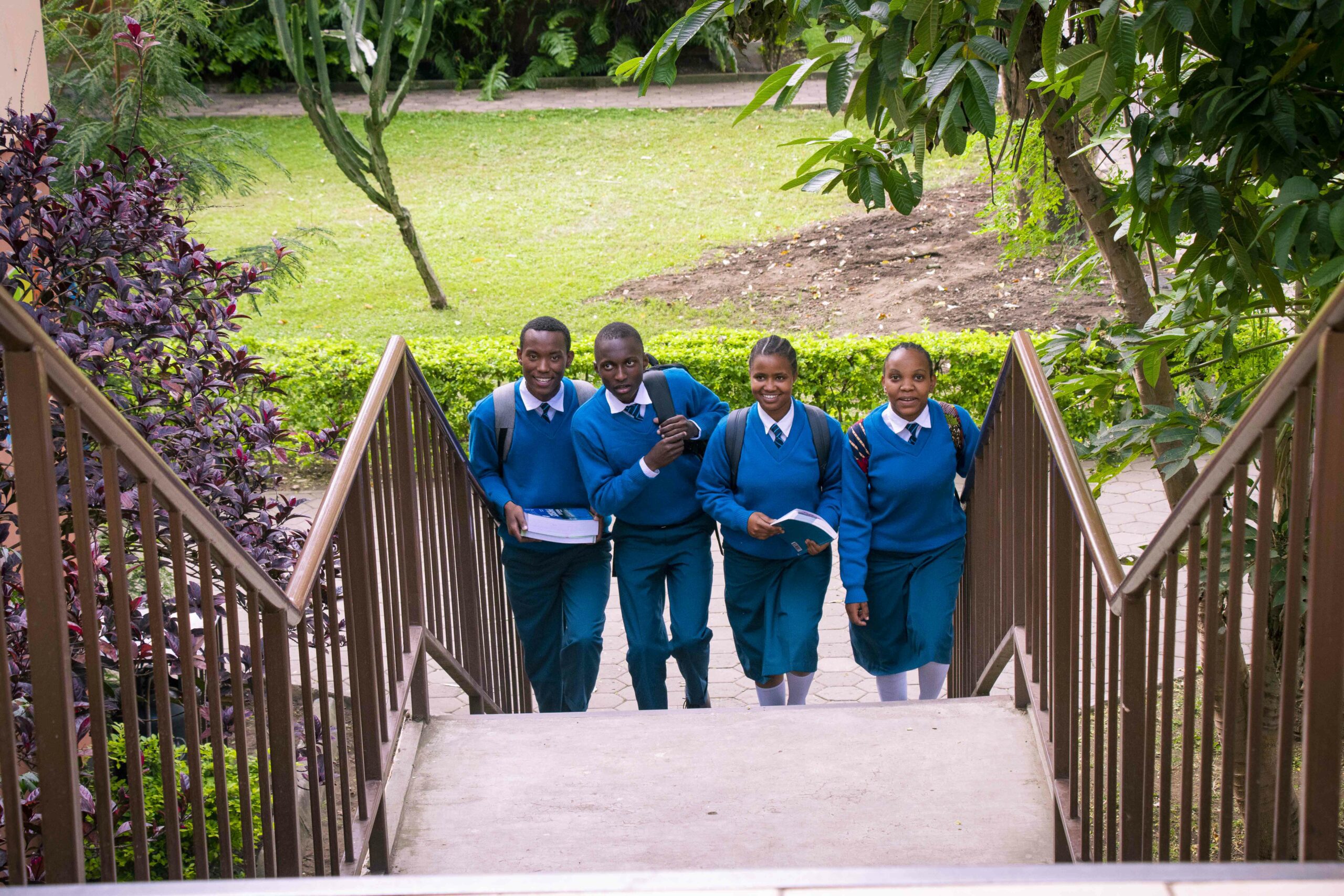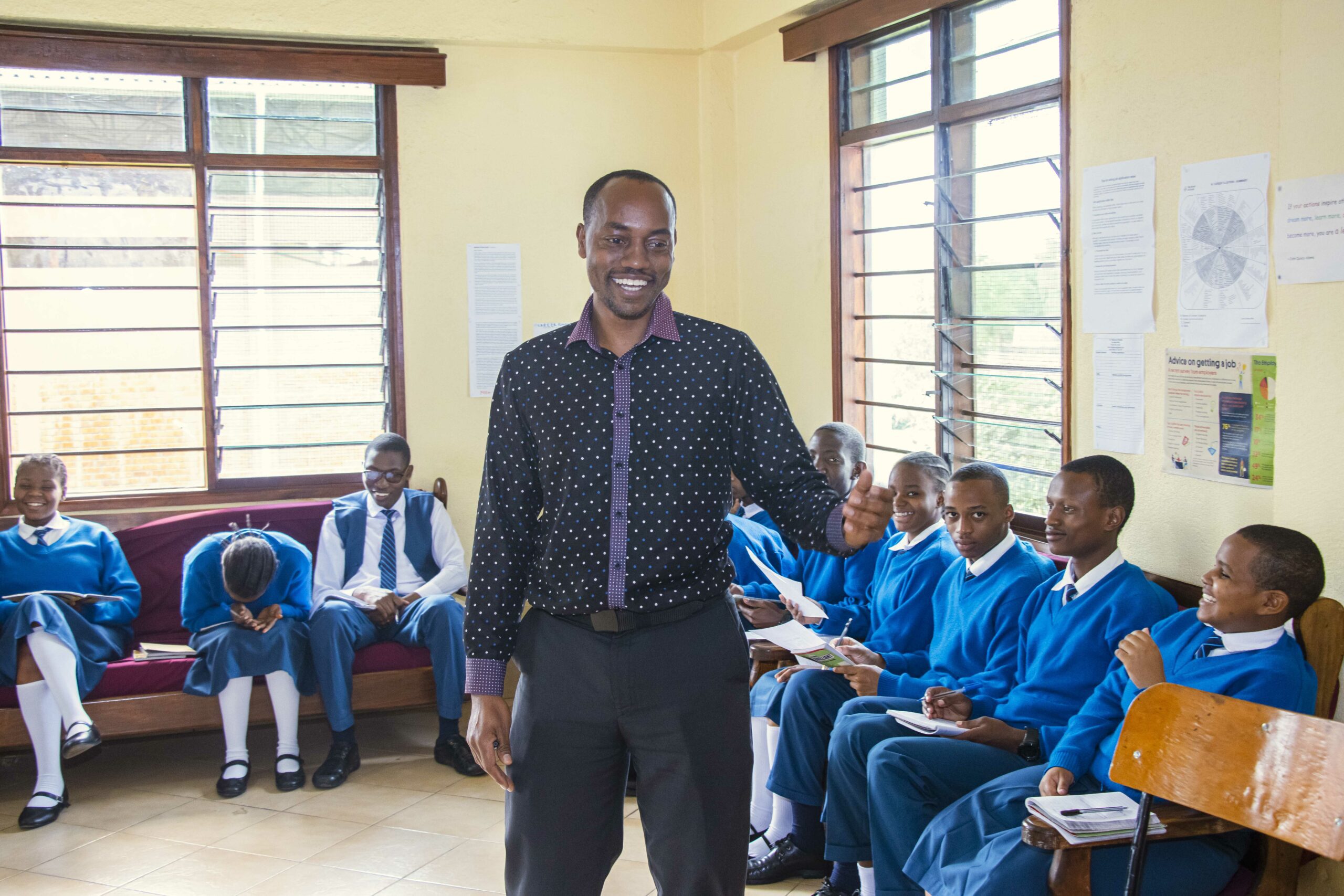Every so often we are going to have guest writers contribute blog posts based upon their relevant expertise – today we have Jane Wall, the Academic Head of the School of St Jude, who provides a thorough analysis of how St Jude’s educational model is helping our students achieve astounding results in the recent Tanzanian Form 4 mock exams and faciliting the professional growth of our teachers.
Follow Jane on Twitter, @janewall.
By Jane Wall
In the recent School Certificate national mock exams less than 20 percent of students across the country achieved a decent pass, and yet the same statistic for The School of St Jude was 100 percent. Why?
Ten years ago when Gemma was establishing St Jude’s, the Tanzanian government was also launching its Primary Education Development Plan. One of the goals was to achieve Universal Primary Education in line with the United Nations’ Millennium Development Goal Number 2 target. Unfortunately, as in many similar countries, the only hope of achieving this was to cram existing classrooms full of children, which significantly increased the student teacher ratio and considerably diluted the quality of education.
In another interesting parallel, when St Jude’s opened its first secondary school classroom, the Tanzanian government was likewise launching its Secondary Education Development Plan. Again, the only way their goals could be achieved was to build hundreds of schools around the country. The students filled the classrooms…. and the teacher shortage continued to grow.
School leavers, with very poor qualifications, were encouraged to attend month long teacher training courses and then were recruited to teach in schools around the country. Paradoxically, high school graduates who achieved a good School Leaving Certificate would have been encouraged into any profession other than teaching, which is not highly regarded as teachers do not have high status within their communities. It is therefore very difficult to recruit teachers with a good, strong personal academic background and a commitment to quality education. Many potential teachers will say that they only trained as a teacher because they would be guaranteed a job and would be able to feed their families.
One very questionable aspect of the Tanzanian education system is that in most primary schools the curriculum is delivered in Kiswahili (the second language of most students, given that their tribal language will be spoken in the home) and then when they reach high school (and only 50 percent of primary students pass the benchmark exam for entry), they are then faced with a full curriculum which is taught and assessed in English only. So students have to master difficult concepts in a full range of subjects in a third language, which is spoken poorly by the teacher and barely understood by the student. Then four years later, the students who make it that far are required to sit for exams which will determine the rest of their lives.
These exams are the sole target for most teachers – the only thing that is of any interest to the teacher, the student and the parent is the exam result and unfortunately the only thing that the exam tests is memory. There is no room in the test for assessing understanding, problem solving, critical thinking, application of knowledge – and so if a student hasn’t got all the facts at their finger tips they will fail. The exam system is recognized to be significantly flawed, the papers are badly prepared and the marking is very inaccurate, but this is how the student is assessed. As a consequence, the only thing of any value at the end of the process is the piece of paper that the results are written on – the student will not have the skills required to make him/her an attractive employee and in a country with high youth unemployment they will no doubt find themselves without a job.
The School of St Jude on the other hand is committed to providing quality professional development for teachers. So the young and poorly qualified “graduates” who turned up at the gate with scrappy CV’s in their hands found themselves in the hands of experienced Western teachers who became their mentors and trainers. To quote George Stephen, the Lower Primary Headmaster at St Jude’s – “We are not the teachers we were when we arrived at St Jude’s.” These teachers are now gaining the confidence to deliver their own professional development and share good practices with their colleagues. They understand the importance of collaborative planning, of self evaluation and they recognize what they need to do to continue to improve the teaching and learning for their students. They are beginning to understand that the exams are not the be all and end all and that it is equally important to produce students who have a broad range of skills and understandings and can apply knowledge from one situation to another.
At St Jude’s there is also a commitment to retain small class sizes and to be able to provide students with the teachers, the resources and the equipment that they need to ensure that teaching and learning is more practical than theoretical, individualized and centred around the student rather than the teacher. A system of accountability has been introduced and high standards are set for both teachers and students. From day one there has been a firm and consistent policy to teach in English from Standard 1 onwards and ESL lessons for teachers are provided in order to enhance the teaching and learning experience and develop a confident use of the language in both the teachers and students.
Of course, all of this requires considerable dedication and commitment from teams of people working constantly behind the scenes to ensure that the school remains supported, because without this, we would be just like any other school in the region and we would not be on the brink of producing some of the best educated and qualified graduates in the whole of Tanzania. Schools around the region are beginning to notice and wonder how it is that in our very first year of Form 4 exams our students are taking the top places and our school is ranked 3rd out of 302 schools and top of all co-educational schools in the North-Western zone. Our collective aim is that we can share what we are doing with other schools, that we share our resources and our expertise and make a difference, not only to the over 1,500 students who pass through our school gates at any one time, but to all those who will be influenced in some way by what is taking place here at St Jude’s.




Replies